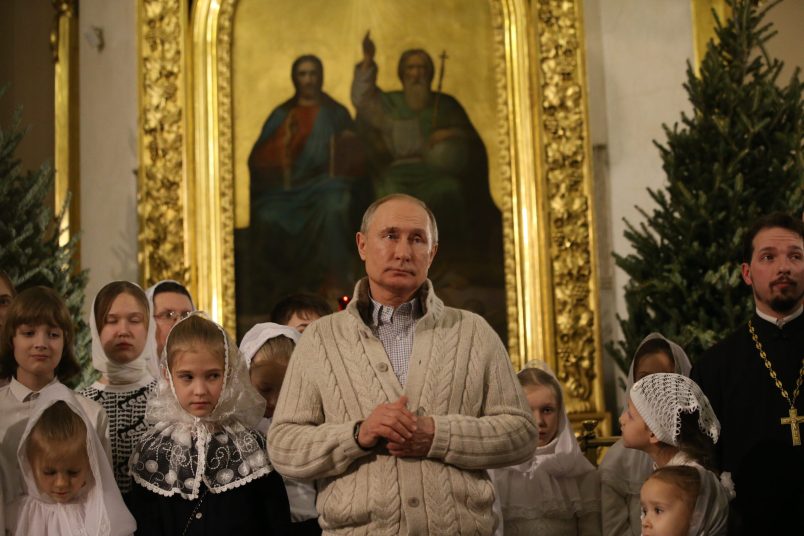Vladimir Putin suggested on Thursday that it’s time for Russia to stay in the business of territorial expansion — drawing direct allusion to long wars with the West to that end.
It comes as the Russian army has spent weeks trying to take the Donbas — Ukraine’s eastern region that, according to Kremlin propaganda, should be full of ethnic Russians waiting for Moscow’s arrival.
Instead, and after earlier retreats from Ukraine’s north, Putin has found himself stuck in a slow, slogging campaign. Russian rhetoric and saber-rattling has increased as the stagnation continues.
So on Thursday, after visiting an exhibition dedicated to Peter the Great’s 350-year anniversary, Putin remarked on how little had changed over the intervening centuries.
“Peter I fought the Northern War for 21 years,” Putin remarked. “It seemed then, fighting with Sweden, that he took something away … but he wasn’t taking anything away, he was returning!”
Putin added that Peter I founded Russia’s imperial capital — St. Petersburg — on territory taken from Sweden during that war.
“When he laid the new capital, not one country of Europe recognized this territory as Russia, they all recognized it as Sweden’s,” Putin said. “And there, since time immemorial, the slavs had lived alongside the Finno-Urgic peoples, and this territory was located under the control of the Russian state.”
It’s another dubious history lesson from a leader who launched his war against Ukraine with two lengthy lectures and an essay expounding on his view of the circumstances that led to the creation of modern Ukraine, from Kyivan Rus to 1991.
But Putin inserted another reference in his Wednesday remarks: Peter the Great’s campaign to take Narva, a city that’s currently part of Estonia.
Peter I fought two campaigns for the city — the first one, an embarrassing failure. The second was a success.
“It’s the same in the Western direction, with Narva, his first campaigns,” Putin said. “Why did he go that way? He was returning and fortifying [this land] — that’s what he did.”
Putin added that Russia’s destiny today is the same: returning and fortifying lost slavic lands.
“Judging from everything, it’s fallen to us to also return and strengthen,” he added. “And if we start from these basic values forming the foundation of our existence, we will unconditionally succeed in solving the tasks that stand before us.”







Russia’s Unity Day (November 4th) is going to be fun to watch.
"Nothing unites like fear and hate."
NATO will help with that lack of definition.